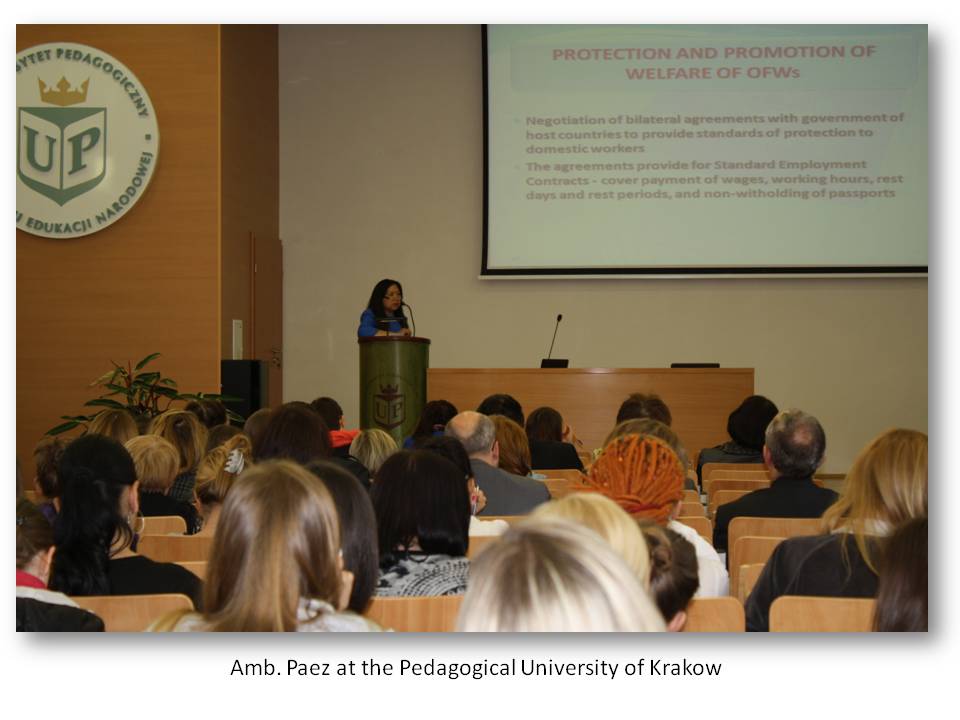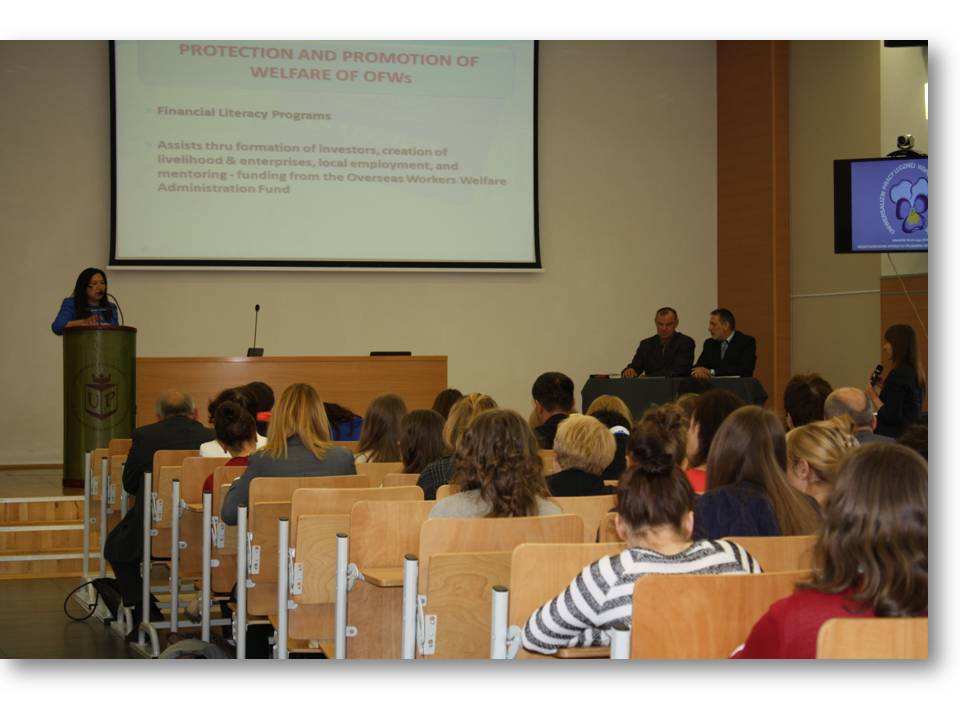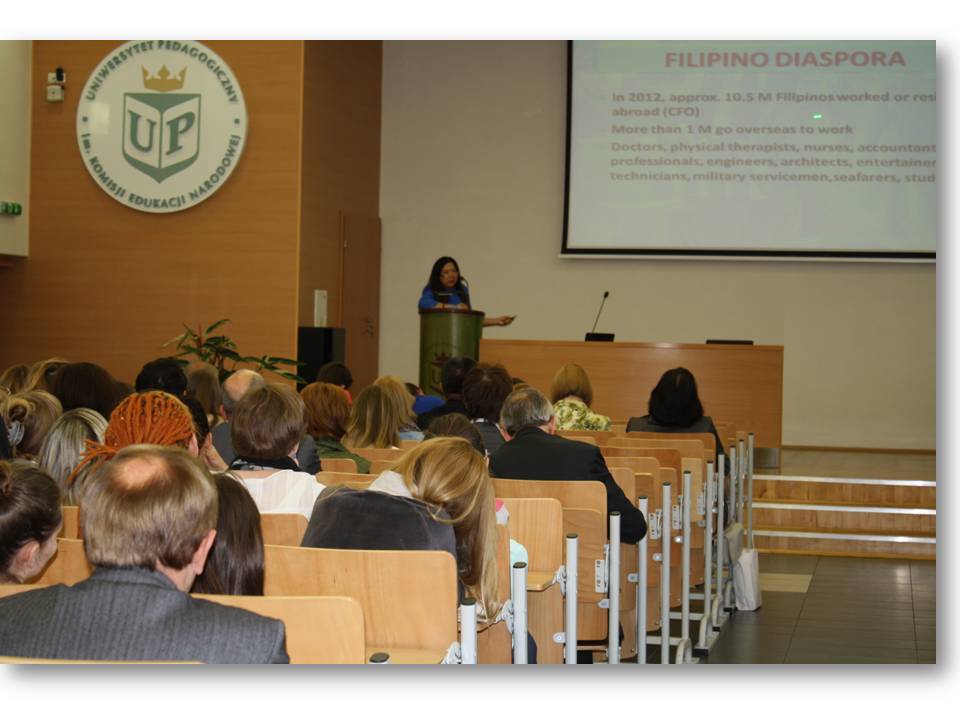



Ambassador Patricia Ann V. Paez cited the key measures which the Philippine government has been undertaking to protect and promote the welfare of an estimated 10 million overseas Filipino workers (OFWs) in her speech before the Pedagogical University of Krakow last 30 May 2014.
She said the 2010 amendments to the Migrant Workers and Overseas Filipinos Act established a system of certifying whether host countries or destinations extend adequate protection to migrant workers and increased the penalties for illegal recruitment.
The scope of what are considered prohibited acts in the recruitment and deployment of workers has also been expanded. Recruitment agencies are also required to provide insurance coverage to workers whom they hire and a Legal Assistance Fund with a yearly budget of 100 million pesos has been established.
In 2013, a law had been passed allowing the freezing of the financial assets and properties alleged to have been laundered by human traffickers and illegal recruiters.
Amb. Paez added that numerous bilateral agreements had been forged with governments hosting OFWs to provide standards of protection for domestic workers. These agreements establish Standard Employment Contracts which cover the payment of wages, the number of working hours, rest day and rest periods, and prohibit the witholding of the OFWs’ passports by employers or recruiters.
For quick response to protect OFWs during crisis situations in the host countries, the Philippine government created the Overseas Preparedness and Response Team (OPRT). The Department of Foreign Affairs (DFA) and the Department of Labor and Employment (DOLE) jointly adopted a crisis alert system for the emergency evacuation and transport back to the Philippines of OFWs in such crises as in Libya, Syria, Yemen, Egypt and in Japan.

